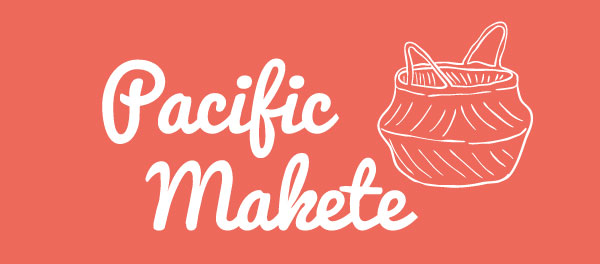Tala Kei Kapa: A sweet entrepreneurial journey

By Sera Tikotikovatu-Sefeti
A brilliant business concept can come from an everyday challenge that forces entrepreneurs to create an innovative solution that can ultimately make life easier for many.
This was the case for Tala Kei Kapa, a gluten and dairy free kitchen that produces tailor-made food and pastries to meet its client’s needs. The idea came after co-founders and life-partners, Siu I-Fanga Jione and Mojito Jione, were diagnosed with gluten and dairy intolerances.
“We started playing around with our food, trying to make it taste good and not rubbery, dry, or just terrible; and we somehow came up with something really nice,” Siu said.
“We thought well, what if there are people out there that are also looking for the same kind of food, and so we decided to sell it at the Roc Market in 2018,” she continued.
The couple ventured into the business with no formal knowledge, and no clear direction, goal, vision, business plan, strategy or budget. “I don’t have a background in business; I learn everything as I go,” Siu confessed.

But this all changed when Siu went to study in the UK. That’s when she learned about the Natasha’s Law , which was named after Natasha Ednan-Laperous, who died at the age of 15 after an allergic reaction to bread containing sesame, which she had unknowingly eaten.
“The Natasha law mandates UK food businesses to label allergens accurately,” Siu said.
“So I quickly learned that this is a public health concern and it is really serious.”
On her return from the UK, Siu dived deeper into research of allergies. “I started collecting information and data about the people that were purchasing things from me, and I have learned that so many people have multiple allergies and food intolerances here in Fiji.
“That is my drive in doing what I do, and food allergies and intolerances are rarely talked about,” she noted.
Because allergies can be literally, a matter of life and death, Siu must be constantly scrupulous with her baking process.
“It’s a scary business because one mistake can be fatal, you know, and so I’m very meticulous with the process that I use, because I think about my customers,” Siu said.
“You know one mistake is bad for business, your customers will not come back.”
Speaking to attendees at the recent USP Entrepreneurial Annual Fair, Siu shared six areas for entrepreneurial success:
Education and training programs: ” That is why this week is wonderful; it’s open to the public; it’s free… and as a small business owner, whenever there is a cost tied to something we take a step back because we cannot afford it.”
Accessing capital: “Access to external funds can facilitate the growth of business ideas. When individuals have access to training that teaches them the necessary business skills, they will be in a better position to access and manage funds and grow their businesses.”
Mentorship and networking programs: These provide great opportunities for entrepreneurs to learn from experienced entrepreneurs. Siu said, “You can learn in any setting anywhere; you can network with people, and I used to sell on Sundays at the Roc Market and Garden City Market.
“That was my place to network with my customers and my vendors, and I asked them questions because, remember, I don’t have a big background in business, so the marketplace is where I go to understand customer preference —what are customers asking for? What are they buying? How much are they willing to spend?” she said.
A good regulatory environment: “Individuals are likely to be encouraged to start a business when there are far fewer bureaucratic barriers; when there’s so much red tape, you just don’t want to go there.” According to Siu, when there are a lot of tax incentives, business registration processes are streamlined, and everything is made easy and convenient, people will be encouraged to set up businesses.
Entrepreneurial drive: “If people are to venture into business, then individuals need to be encouraged to value their own ideas, to be open to new ideas, to take risks, to do what they enjoy, and to think outside the box and have the ability to adapt,” Siu said.
“The more uncomfortable you are, the better, because that is the only time you will grow; you will not grow if you stay comfortable,” she adds.
Recognising and celebrating success: Successful entrepreneurs can help inspire others and create a culture that values entrepreneurship. This can include award competitions and other forms of public recognition.
“That’s the beauty of being an entrepreneur; you own your ideas and you bring them to life. You stand up and say, ‘That’s my achievement, validated by being a small business with a very big impact.’”

